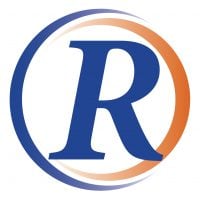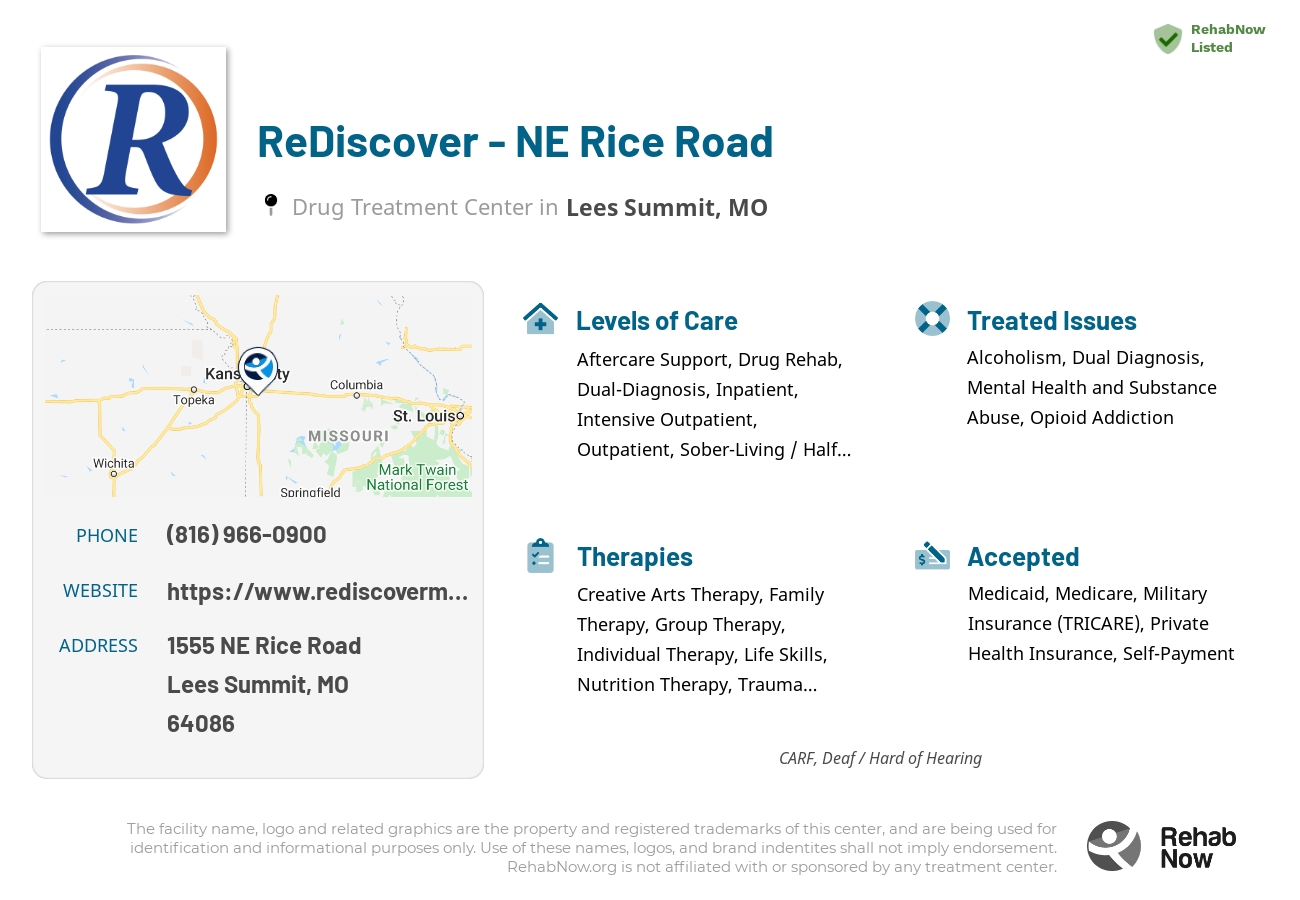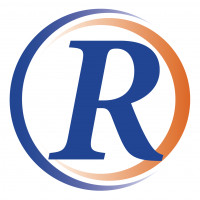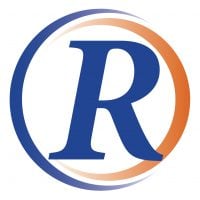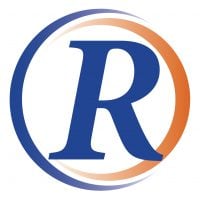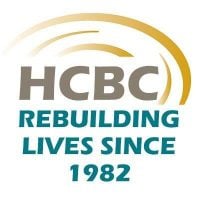ReDiscover - NE Rice Road
Drug Rehab Center in Lees Summit, Missouri
ReDiscover is a comprehensive, CARF-accredited substance abuse and mental health treatment program in Lees Summit, Missouri that provides evidence-based care and a holistic system of therapies to provide quality treatment to individuals and families.
About This Missouri Facility
Nestled in the heart of Lee's Summit, Missouri, ReDiscover is more than just an alcohol and drug rehabilitation center. It is a haven for individuals and families battling the shadows of mental illness and substance use disorders. With a strong focus on comprehensive care, this nonprofit community mental health center stands out by offering medical and clinical support alongside modern amenities in both its residential and outpatient settings. Their philosophy revolves around involving loved ones in the recovery process, reinforcing the network of support vital for achieving and maintaining sobriety.
- Comprehensive Care: Offers both medical and clinical services catering to the needs of men, women, and children in a friendly, supportive environment.
- Family Involvement: Actively involves friends and family in the treatment process to build a robust support system for clients.
- Flexible Treatment Options: Provides both inpatient and outpatient programs tailored to meet the individual stages of addiction and personal circumstances of clients.
ReDiscover prides itself on being accredited by the Commission on the Accreditation of Rehabilitation Facilities (CARF), a testament to its commitment to high standards of care and service. The facility crafts a personalized journey for recovery, offering clients the comfort of residential treatment with furnished rooms and staff-prepared meals or the flexibility of outpatient programs tailored to those in early stages of addiction or in need of a transitional step towards sober living.
Specializing in treating a wide array of addictions and mental health issues, ReDiscover utilizes evidence-based treatments such as cognitive behavioral therapy, 12-step facilitation, and medication management. With an array of care levels including detoxification, inpatient therapy, and aftercare support, the center is equipped to guide clients through every step of their recovery process, focusing on holistic healing and the development of healthy, sustainable life skills.
Genders
Ages
Modality
Additional
Accreditations

CARF
The Commission on Accreditation of Rehabilitation Facilities (CARF) is a non-profit organization that specifically accredits rehab organizations. Founded in 1966, CARF's, mission is to help service providers like rehab facilities maintain high standards of care.
Conditions and Issues Treated
Substance abuse is defined by the continued use of drugs or alcohol despite negative consequences, such as legal or work problems. It can be treated using a variety of services, including therapy and medication.
Substance abuse treatment is beneficial for:
- People who have been using drugs or alcohol for a long time.
- People who have been using drugs or alcohol to cope with stress, anxiety, or depression.
- People who have a mental health disorder in conjunction with substance abuse.
- People who continue to use drugs or alcohol despite the harmful effects they cause on their own life and the lives of others.
- People who have had multiple failed attempts at recovery without medical assistance.
If you believe that addiction treatment is right for you or a loved one, you can contact your primary care physician, or search for addiction treatment centers in your area. Treatment is beneficial to people who are motivated towards recovery, and who understand the benefits of professional care.
Opioid addiction is the result of repeated use, or abuse, of opioid drugs. It is recommended for people who are dependent on opioids, or who have a high risk for dangerous health concerns, to seek professional treatment. Treatment plans usually include behavioral therapy and medication-assisted treatment.
Opioid drugs include: fentanyl, heroin, methadone, oxycodone, and oxymorphone.
Opioid addiction treatment is beneficial for:
- People who have a history of severe withdrawal.
- People with a high risk for dangerous health concerns.
- People having difficulty overcoming opioid addiction on their own.
There are different kinds of Dual Diagnosis:. A person who simultaneously experiences both a mental illness and an addiction disorder. Or, a person who experiences one or more coexisting (simultaneous) mental health conditions in addition to a primary substance use disorder.
The treatment requires a multi-disciplinary approach, it’s crucial for individuals to partner up with a healthcare provider who understands all the recovery components.
Levels of Care Offered at ReDiscover - NE Rice Road
This center offers a variety of custom treatment tailored to individual recovery. Currently available are Aftercare Support, Detox, Drug Rehab, Dual-Diagnosis, Inpatient, Intensive Outpatient, Outpatient, Partial-Hospitalization, Residential, Sober-Living / Half-Way, with additional therapies available as listed below.
Detox is the stage of recovery where the drugs or alcohol are entirely removed from your body. There are two different ways to detox, with medications and without. For many drugs and alcohol, the acute phase of detox can be completed in a number of days.
Inpatient treatment is the most intensive level of care, and it’s necessary for those who aren’t able to control their addiction. These patients also must be drug-free before attending inpatient programs .
During inpatient treatment, addicts live at an inpatient facility 24 hours a day while receiving help. This type of program is generally recommended for those who need to go through detoxification or who are struggling with serious addiction-related issues.
An Intensive Outpatient Program (IOP) is a form of drug treatment that allows individuals to receive the therapy they need while remaining in their homes and community.
An IOP is typically 3-5 days per week, at least 4 hours each day of treatment. Treatment can last for a few months or longer, depending on the situation.
An IOP is a step down from an inpatient treatment center and can be used as a step down from an inpatient stay or as a more intense form of outpatient treatment. IOPs allow for the flexibility to continue working and living at home while still meeting treatment demands.
The outpatient programs in Lees Summit, MO are for those addicted drugs or alcohol. The goal of the outpatient rehabilitation program is to make them stop abusing drugs or alcohol, reduce drug use or addictive behaviors, and become entirely sober. It is generally required to attend the outpatient program for 10-12 hours every week.
Patients can be administered on-the-spot medication to ease withdrawal symptoms such as anxiety, increased heart rate, and even depression. Groups such as Alcoholics Anonymous (AA) and Narcotics Anonymous (NA) can be used as a part of outpatient treatment to help maintain sobriety.
A Partial Hospitalization Program (PHP), also known as an Aftercare Program, is a short-term intensive treatment program usually consisting of five (5) days a week. A PHP can be an effective alternative for those who cannot commit to living in a rehab facility 24/7 but require daily medical supervision. A PHP provides comprehensive addiction services seven (7) days a week and is usually attended by the addict every day.
This allows addicts to continue working, stay close to their family and friends, and minimize disruptions to their daily routines. Upon entering a PHP, patients are assessed by Addiction Psychiatrists, Medical Doctors (MD), Nurses, Psychologists, and Therapists. This assessment will determine the appropriate level of care.
Although PHP’s are similar to residential programs, they lack 24-hour supervision. This is because aftercare patients are still expected to follow the rules of their recovery and meet specific goals. This will allow them to assimilate back into society without relapse.
A Sober Living Home (SLH) is a term used to describe houses where people recovering from addiction can stay. The goal of these places is to provide immediate support and protection that the addict needs and force them to live a life free from substance abuse. SLH’s typically allow the addict to live there for 30, 60, or 90 days.
Residential treatment programs are those that offer housing and meals in addition to substance abuse treatment. Rehab facilities that offer residential treatment allow patients to focus solely on recovery, in an environment totally separate from their lives. Some rehab centers specialize in short-term residential treatment (a few days to a week or two), while others solely provide treatment on a long-term basis (several weeks to months). Some offer both, and tailor treatment to the patient’s individual requirements.
Aftercare support is a service many addicts need to ensure their success at recovery. This service usually includes one-on-one or group therapies, assistance from a sponsor and other types of help designed to make sure the patient continues living a life free from drugs.
Patients also may require medication to help them battle addiction. Some people have been able to successfully recover without additional medications, but others have found that they need help during their transition. Long-term, the patient must take the initiative to attend meetings and receive help from other addicts in recovery.
Therapies & Programs
People in addiction recovery can benefit from individual therapy. This type of therapy involves meeting with a therapist one-on-one. This allows for a personal and trusting relationship to be built so that the patient can be truly themselves and express any emotions they feel. Individual therapy leads to greater understanding and peace about your triggers for addiction and coping strategies to prevent relapse.
Couples therapy for drug addiction is based on the belief that addiction is a family disease. Everyone involved with an addict, not just the addict themselves, is affected by their behavior and the changes the addict goes through. The relationship also changes the addict’s significant other and has likely picked up some codependent behaviors. Codependency is a term used to describe a person obsessed with another person and their needs and feelings while neglecting their own. Addicts are usually people-pleasers, so it is understandable how one can become codependent in relationships with addicts.
Family therapy is a type of group problem-solving that aims to improve communication and relationships between the patient, their family, and sometimes friends. The main goal of family therapy for drug addiction is to create an environment where communication can occur without judgment, hostility, or blame. The therapist is with the family as they learn to communicate with each other differently, especially with the addict when s/he is using.
Group therapy sessions are held in rehab facilities, clinics, churches or community centers that offer drug addiction treatment. People who attend these groups are encouraged to voice their feelings and support other addicts in recovery. This helps group members strengthen their own recovery program while cheering on others who are struggling with sobriety.
Group therapy sessions provide recovering addicts with a chance to cope with everyday situations that many face. Group therapy sessions are held in rehab facilities, clinics, churches or community centers that offer drug addiction treatment.
People who attend these groups are encouraged to voice their feelings and support other addicts in recovery. This helps group members strengthen their own recovery program while cheering on others who are struggling with sobriety.
If you’re looking for addiction treatment, it’s important to find a facility that offers trauma therapy. This type of therapy helps people process and understand the past traumas that have led to their addiction. Trauma therapists will work with clients to help them understand their past and present relationships and show them that they are worthy of love. This therapy is typically done using visualization, discussion, and writing down thoughts and feelings.
Trauma Therapy is a form of therapy that involves working with a patient to help them process and understand the past trauma(s) in their life. This therapy is typically done using techniques such as visualization, discussion, and writing down thoughts and feelings. The main goals of trauma therapy is to help clients express their emotions and talk about what they are feeling.
Dialectical Behavior Therapy (DBT) is a form of cognitive-behavioral therapy that helps people understand how they connect their thoughts, behaviors, and feelings. It can give them more control over their actions, effectively stopping self-harm ideations and attempts in some patients. It also helps put those with borderline personality disorder into control for managing mental struggles.
A new study has shown that DBT works for those with self-harm behaviors and addictions by giving them therapy they can relate to and understand.
Cognitive Behavioral Therapy (CBT) helps addicts identify faulty, negative thinking so that they can work together with the therapist to find healthier ways of thinking. CBT focuses on specific aspects of each person’s thinking, feeling, physiology, and behavior. It aims to identify specific problems in these areas, and create a personalized treatment strategy.
Life Skills Services offered at ReDiscover - NE Rice Road assists addicts in their recovery by teaching them healthy coping mechanisms that will aid them in becoming sober, focussing on helping people enter into, and maintaining long-term sobriety. ReDiscover - NE Rice Road provide Life Skills Services at varying levels of intensity, specific to the needs and requirements of each patient.
Benefits of Life Skills Services offered at Drug Treatment Centers in Missouri:
- Restores hope and empowerment — Helps addicts believe that recovery is possible and instills a new confidence in their ability to achieve a positive, drug-free future
- Enhances family involvement — Encourages families to get involved in the recovery process and supports their understanding and encouragement of healthy behavior.
- Increases patient’s compliance — Helps patients take responsibility for and ownership of their recovery and encourages continued progress
- Reduces relapse rates — Encourages long-term abstinence and emphasizes the importance of establishing sober support systems.
12-Step Program is used by drug treatment centers to get addicts sober. The treatment is outlined by Alcoholics Anonymous and Narcotics Anonymous books which detail the steps drug users need to take in order to get sober. The program is often used as a part of an inpatient or outpatient treatment program and is frequently recommended by doctors.
The 12 steps typically begin with addicts admitting they need help. They are then guided through the steps by a sponsor, someone who has already struggled to get sober themselves. They will work through physical withdrawal symptoms, identify the problems that led to their addiction and learn how to resist cravings.
Addicts often experience intense cravings for sugary foods during recovery. By teaching addicts how to eat well and stay healthy, therapists can help them manage their cravings over the course of treatment.
During these sessions, Lees Summit, Missouri dietitians and therapists will offer advice about healthy eating options and teach addicts how to make specific changes in their diet that can help reduce the effects of cravings during recovery.This type of therapy is often used in conjunction with other types of addiction treatment services. By identifying specific triggers and developing strategies to help addicts avoid relapse, most individuals can overcome their cravings and stay sober for good after they finish rehab.
The first step to becoming a non-smoker is the choice to quit smoking. Nicotine replacement therapies are effective because they provide you with the nicotine you are addicted to without inhaling carcinogens from cigarettes.
There are several types of NRT. These include:
- Nicotine gum
- Nicotine patches (transdermal systems)
- Nasal spray
- Lozenges
The benefits to using NRT can include:
- Reduce the risk of heart disease and cancer
- Reduce the anxiety and irritability associated with quitting smoking
- Reduce the risk of type II diabetes.
- Improved fertility in women
Some people call CM motivational incentives. This type of therapy retrains the mind and body. The goal of CM is to teach the body how to react appropriately to certain positive or negative behaviors. People who make good choices will be rewarded with privileges from key staff members at ReDiscover - NE Rice Road.
These rewards may include an early release date for inmates who have been incarcerated for drug abuse crimes, despite having a prison record full of negatives.
Patient Experience
Creative Arts
Creative Arts Therapy is a treatment method for patients of ReDiscover - NE Rice Road in Lees Summit, Missouri who are victims of addiction to drugs, alcohol, or other substances. Group Creative Arts Therapy sessions help addicts get sober by allowing them to meet and talk with peers who are going through the same problems. This builds trust and helps addicts understand that they are not alone. Depending on the severity of the patient’s drug or alcohol problem, they may attend group creative art therapy sessions or individual sessions.Experiential Therapy at ReDiscover - NE Rice Road
Experiential Therapy allows addicts to release emotions in a safe environment. The process involves addicts painting their feelings and releasing them on a canvas. LPE – Love, Peace, and Equilibrium is one of the most popular forms of experiential therapy.
Payment Options Accepted
For specific insurance or payment methods please contact us.
Is your insurance accepted?
Ask an expert, call (888) 674-0062
ReDiscover Associated Centers
Discover treatment facilities under the same provider.
- ReDiscover in Lees Summit, MO
- ReDiscover - Independence Avenue in Lees Summit, MO
- ReDiscover - Loma Vista in Kansas City, MO
- ReDiscover - Woodland in Kansas City, MO
- ReDiscover - Coed Residential in Lees Summit, MO
Learn More About ReDiscover Centers
Additional Details
Specifics, location, and helpful extra information.
Lees Summit, Missouri 64086 Phone Number(816) 966-0900 Meta DetailsUpdated April 15, 2024
Staff Verified
Patient Reviews
There are no reviews yet. Be the first one to write one.
Lees Summit, Missouri Addiction Information
Opioid-related overdoses in Missouri have been increasing steadily for the past three decades. In 2018, more than 1,130 people in Missouri died from opioid abuse. Methamphetamines and marijuana abuse have surpassed opioid abuse in Missouri. Missouri is the number 1 methamphetamine manufacturer in the country with more than 27 meth labs per 100,000 people.
Over 6% of the population in Lees Summit struggles with addiction to drugs or alcohol. This can have a ripple effect on friends, family members, and co-workers. The most commonly abused drugs in Lees Summit are marijuana, cocaine, and heroin. Treatment may last anywhere from a few weeks to a few months, depending on the severity of the addiction and the person's individual needs.
Treatment in Nearby Cities
- Fulton, MO (129.9 mi.)
- Windsor, MO (53.2 mi.)
- Warrenton, MO (173.5 mi.)
- Saint Peters, MO (201.1 mi.)
- Hazelwood, MO (215.1 mi.)
Centers near ReDiscover - NE Rice Road
The facility name, logo and brand are the property and registered trademarks of ReDiscover - NE Rice Road, and are being used for identification and informational purposes only. Use of these names, logos and brands shall not imply endorsement. RehabNow.org is not affiliated with or sponsored by ReDiscover - NE Rice Road.
